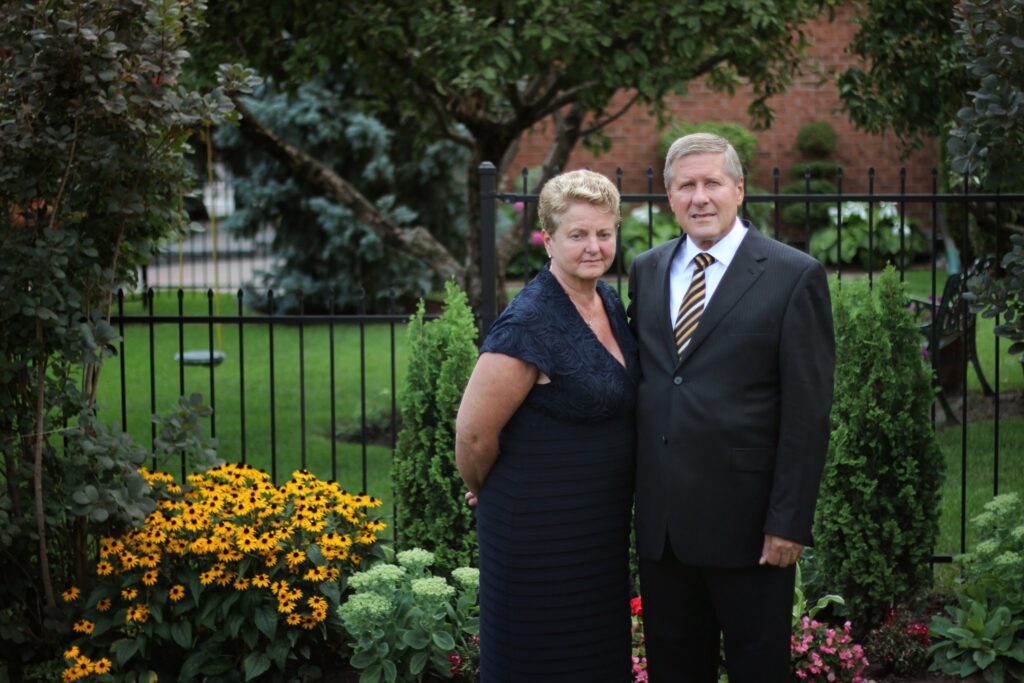Lifestyle
15 Hard Lessons You Learn After a Long Marriage

Marriage isn’t something you master—it’s something you keep showing up for. Over time, even the best relationships face friction, change, and growing pains. Staying married for decades means learning lessons no one talks about at the wedding. These are the quiet truths people only understand once they’ve spent years navigating love, resentment, joy, boredom, and everything in between.
You won’t always like each other at the same time.

There are days when one of you is frustrated, tired, or just irritated for no clear reason. It happens. Some stretches are filled with warmth, others with distance. What matters is choosing to stay connected even when your moods don’t match. You learn that liking each other every moment isn’t realistic. Love stays, even when the vibe’s off. Marriage is full of resets—and you both have to be willing to push through those rough patches.
Love changes shape.

Early love might come with butterflies and late-night talks. Years later, it might look like folding laundry or staying quiet during a stressful day. You stop measuring love by excitement and start recognizing it in loyalty and patience. That shift isn’t always smooth and can leave you wondering if something’s wrong. But once you accept that love evolves, you stop chasing a feeling and start building something more lasting.
You can grow apart even if you stay together.

Sharing meals and chores doesn’t guarantee emotional closeness. If you stop talking deeply or stop showing up for each other’s joys and struggles, distance grows—quietly. You might be under the same roof but on different paths. The fix isn’t always dramatic. It’s usually small: ask better questions, show interest, pay attention. It takes effort to stay emotionally in tune as life pulls you in different directions.
Some arguments never get fully solved.

Some disagreements don’t disappear. They just resurface less often or lose their sting. You might never agree on money, parenting, or how to load the dishwasher. That’s okay. Maturity in marriage is accepting that perfect resolution isn’t always the goal—peace is. Over time, you figure out which battles matter and which ones you can simply manage without resentment.
Silence isn’t always peace.

Sometimes, the quiet in a home isn’t calm—it’s emotional distance. When conflict gets avoided for too long, things start to rot under the surface. A marriage built on silence can look smooth from the outside but feel empty inside. Long-term couples learn that real peace involves facing things. It’s less about avoiding fights and more about knowing how to reconnect after them.
Romance won’t happen on its own.

Love doesn’t stay magical just because you’ve been together a long time. Routine and stress kill spontaneity. If you want sparks, you have to light them yourself. That might mean planning something small, saying what you appreciate, or finding a way to laugh again. Long-term romance isn’t grand—it’s intentional. You build it in the middle of real life, not just when things are perfect.
You’ll hurt each other—even when you don’t mean to.

Words get said. Promises get broken. Sometimes, you shut down when they need you most. No one makes it through a long marriage without causing pain. But what you do after matters more. Can you admit it? Apologize? Change the behavior? Long-term love requires repair—not just regret. You learn that love survives best when both people are willing to own their flaws and make things right.
Time together doesn’t always equal connection.

Just because you spend your days side by side doesn’t mean you’re emotionally close. Couples can go months without having a meaningful conversation. Connection takes more than shared space—it takes attention. Asking how they’re really doing. Noticing when they’re off. Long marriages require you to keep choosing closeness instead of coasting on routine. If you don’t keep reaching for each other, distance quietly grows.
One of you will carry more weight sometimes.

Health issues, burnout, grief—life throws curveballs, and sometimes, one person can’t give much. The other has to carry more. That’s not failure—it’s part of the rhythm. What matters is that things balance out over time. If one partner always ends up carrying the weight, that creates resentment. But when both people take turns lifting the heavy parts, it builds a quiet, lasting kind of trust.
You won’t change each other.

It’s tempting to think time and love will mold someone into your ideal partner. But people don’t change unless they want to. The habits, quirks, or flaws that bothered you in year three might still be there in year thirty. Growth happens, but expectations must stay realistic. Marriage works best when you stop trying to reshape your partner and start learning how to accept them fully—as they are now.
You’ll be tested in ways you didn’t expect.

It won’t always be about love. Sometimes, it’ll be about grief, illness, financial pressure, or family drama. These outside forces can strain even the strongest bonds. How you show up for each other during hard times shapes the foundation of your marriage more than any vacation or anniversary ever will. The test isn’t whether you avoid hardship. It’s how you walk through it—together.
Intimacy isn’t just physical.

Over time, physical connection changes. Health, hormones, and stress all play a role. But intimacy isn’t only about what happens in the bedroom. It’s also about trust, shared laughter, being vulnerable, and feeling safe. Couples who stay close often redefine intimacy as they age—without shame or comparison to the past. It becomes more about being known and cared for than about physical performance.
Routines can quietly kill closeness.

Waking up, making coffee, doing work, eating dinner, watching TV, going to bed. It sounds harmless, but over the years, routine can flatten things out. Without small disruptions—spontaneous plans, honest talks, unexpected gestures—you stop seeing each other clearly. Breaking routine now and then helps you remember there’s a person behind the pattern. It’s not about grand gestures. It’s about staying awake to each other.
You’ll need outside support sometimes.

There’s no shame in therapy, talking to friends, or seeking advice. Long marriages aren’t proof of perfection—they’re proof of work. And sometimes that work needs outside help. Thinking you should fix everything inside the relationship without tools or perspective can lead to feeling stuck. Asking for help is often the smarter choice—and the braver one, too. It shows you care enough to try something different.
Staying together doesn’t always mean it’s working.

This is one of the hardest truths. Some couples stay married out of habit, fear, or obligation—not connection. A long marriage isn’t automatically a happy one. What matters is whether you’re still learning, laughing, and choosing each other. If the relationship stopped growing years ago, staying becomes survival—not love. And it takes courage to admit when something isn’t working, even after decades.

